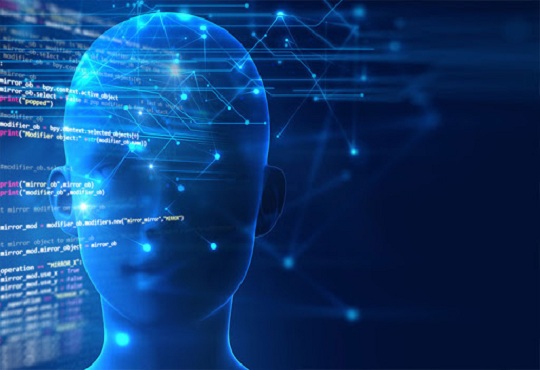How Cognitive Computing can Expedite Business Transformation
Janifha Evangeline | Sunday, 04 July 2021, 12:51 IST

The first era of computing was the Tabulating Era (1990 – 1940). It consisted of machines that implemented punch cards for data input; however it performed very simple calculations. The next era was the Programming era which took over in the 1950s. Therein, although the complex data trees and feedback loops with a specific outcome became programmable, the limitation of the Programming era was that the programs were limited. After that, the Cognitive era came into existence in 2011 and was known for its ability to adapt, make judgments, and self-learn.
Using computer systems for solving the kind of problems, which human beings are usually tasked with needs huge amounts of both structured as well as unstructured data, and these must be fed to ML algorithms. And, in due course, the cognitive systems became capable of refining the way they identify patterns and process data in order to transform into being capable of predicting new problems as well as model possible solutions. In order to achieve the aforementioned capabilities, a cognitive computing system must possess five main attributes, which are listed by the Cognitive Computing Consortium. Cognitive systems must be Adaptive, Interactive, Iterative & stateful, and Contextual.
IBM Watson
Jeopardy – the game show which uses clever clues and wordplay in the question & answer format, where IBM Watson received so much attention while competing against two famous jeopardy champions is a perfect example of Cognitive Computing. IBM’s Watson - a question-answering computer system, which is capable of receiving unstructured data, makes perfect sense of the question and would provide an answer in an unstructured and human manner.
Currently, IBM’s Watson is implemented and leveraged in the financial sector. Watson advises the banks’ clients with their banking needs, which is on a level surpassing the capabilities of a simple chatbot. What is stunning about Watson is that it is capable of distinguishing when it should advise the clients, when to ask follow-up questions or ask more questions for clarity and also escalate the communication to a human, when human intervention is needed.
Today, Watson is making huge impacts in various industries such as Healthcare, Finance, Retail, & Fantasy Football.
Factors driving the market growth
According to a recent report, the cognitive computing market is anticipated to reach USD 72.26 billion by 2027, globally. Increasing penetration towards neural networks, AI/ML is the major factor bolstering the market growth. As per Data.gov, the spending on cognitive and AI systems amounted to USD 37.5 billion, globally in the year 2019 and is anticipated to reach USD 77.6 billion in the year 2022.
Current trends
Organizations shifting their focus on deploying cloud-based cognitive technology is a major emerging trend in the cognitive computing market. This is because Cognitive cloud computing aids enterprises in increasing their revenue and operational efficiencies and decreasing costs. Furthermore, companies are also mainly focusing on adopting cognitive cloud computing solutions with an aim to cater to real-time use cases. This includes production for product enhancement & also supply chain optimization. Major players in this landscape are mainly focused on developing a cognitive cloud computing platform, in order to meet the surging demand across various industries and business enterprises.
Reduce analytics timelines from weeks to minutes
The cognitive computing market is classified into platforms & services, on the basis of components. While owing to the growing adoption of these platforms that include cloud amidst end-users is predicted to fuel the demand for the cognitive computing platform, the services landscape is predicted to display paramount growth over the forecast period. Furthermore, what is remarkable about cognitive computing is that organizations can reduce analytics timelines from weeks to minutes by using these services, and therefore, enterprises are investing largely in cloud-based cognitive solutions and related services. For instance, 3 AWS Cloud Cognitive services were launched by Amazon Web services which include Computer vision, text-to-speech, and chatbot services.
Factors restraining the market growth
While, huge upfront investment/capital investment is needed to build cognitive solutions, set up maintenance architecture & infrastructure, resulting in huge operational costs, there is a need for exhausting resources for the operation and setup process as it is highly complex. The reason why it requires exhausting resources and huge upfront investments is that the process consumes a substantial amount of energy, network components, data centers, etc. In addition to this, issues such as uncertain regulatory compliance are also anticipated to restrain the market growth.
Failing to analyze risk
The cognitive systems are not successful at analyzing the risk that is not found in the unstructured data and these include important elements such as the culture, people, socio-economic factors, and political environments.
Need of meticulous training
At first, cognitive systems required training data in order to fully understand the process and make improvements. However, the arduous task of training cognitive systems is probably found to be one of the major reasons for the technology’s slow adoption.
Developing emerging technologies
The Indian Navy on 29th June 2021, signed an agreement with DPSU Bharat Electronics Ltd. intending to develop emerging technologies. These emerging technologies were related to Robotics, AI & Quantum computing.
"The Technology Incubation Forum (ITF) reflects the joint vision of the Indian Navy and Bharat Electronics Limited towards innovative and creative thinking and fostering the development of emerging technologies," the defence ministry said.
"The broad charter of the TIF includes technology development in the domain of weapons and sensors, information technology and emerging technologies such as artificial intelligence and machine learning, quantum computing, autonomous platforms/robotics, image processing, and cognitive radio," it said in a statement.
The ministry said, “the TIF will spearhead the mission-mode development of deployable products under the government’s Aatmanirbhar Bharat” (self-reliant India) initiative with the involvement of industry, academia, and start-ups.
The Future of Cognitive Computing
The future of cognitive computing will be creating a huge impact in every industry vertical right from education, to banking, fraud detection to self-driving vehicles, not just that but also conservational efforts and make-up recommendations as well. Cognitive computing would play a significant and critical role wherever there is data and a need for the solution by solving the problem.




